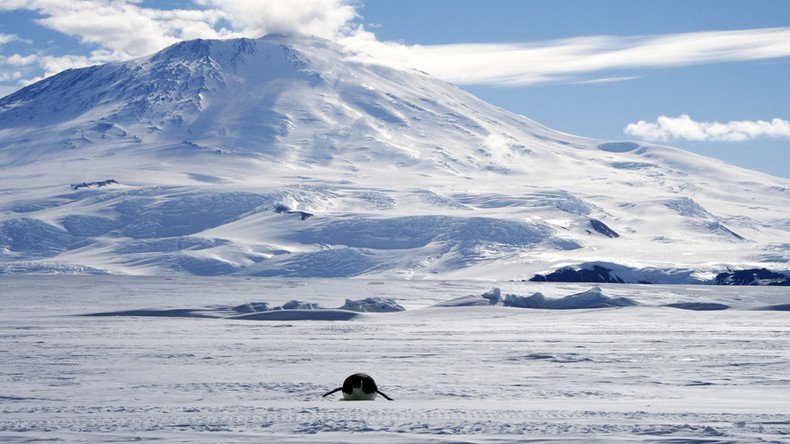Cool as ice: Newly-discovered lake in Antarctica may hold prehistoric life

A newly discovered lake in Antarctica, sealed off from the outside world for millions of years, could hold previously-undiscovered life, scientists believe.
The giant underground body of water will be the second largest found on the continent, if confirmed, and is located conveniently close to a research station, making it ideal for study.
The lake could potentially hold undiscovered or prehistoric life left to evolve on its own due to its subglacial state, covered in a sheet of ice.
Water in the lake remains in liquid form due to geothermal activity heating it from underneath.

The lake measuring 100km by 10km (63 miles by 6.25 miles), second to Lake Vostok at 240km by 60km, was discovered by scientists from Imperial College London based on satellite imagery. Grooves on the ice surface similar to those found on known subglacial lakes and channels alerted scientists to its presence.
Announcing their findings at the European Geosciences Union in Vienna last week, they said scientists from the US and Canada have recently flown over the lake to gather more radar data for analysis and to confirm their findings, which will likely be discussed in May.
location of newly discovered subglacial lake in Antartrica pic.twitter.com/cAIB4n4lpb
— Colm McGlinchey (@ColmMcGlinchey) April 26, 2016
Located on the eastern coast of the frozen continent in Princess Elizabeth Land, the potential new discovery lies 100km away from the nearest research base, a short distance compared to the remote Lake Vostok and relative to Antarctica’s overall size, according to Martin Siegert, one of the scientists involved in the discovery.
Russian scientists made significant progress in the study of Lake Vostok earlier this year when they successfully drilled a borehole through the ice.
Three years earlier, their efforts were spoiled when pressure from gusher underneath the drill contaminated potential samples, according to the team.
Lake Vostok breakthrough: Russian scientists drill ‘clean’ hole into subglacial basin http://t.co/hQNjYZTRGVpic.twitter.com/td42fUprtQ
— RT (@RT_com) January 25, 2015












